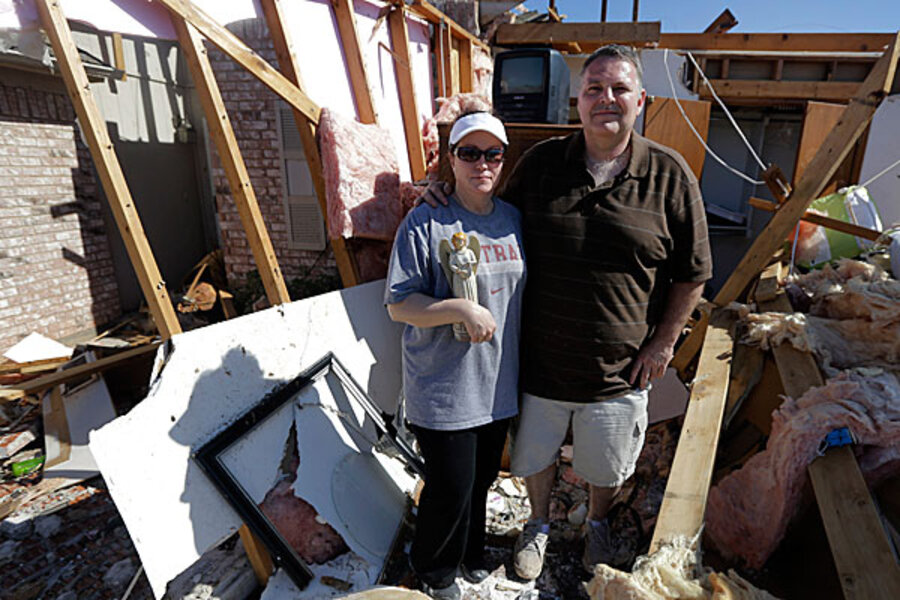As she ran from room to room, Cindy Sasnett prayed to God for help and cursed herself for not being better prepared.
"What was I thinking?" she remonstrated herself for not insisting they build a storm shelter. "We should have had one. If anything, for the children."
The day of the tornado, husband Jim Sasnett, machinist, was at work about 10 miles away in Oklahoma City. Cindy, who runs a daycare out of their 1,600-square-foot home, had six charges that day, including her 2-year-old grandson, Jack.
About an hour and a half before the storm hit, parents of four kids had come to retrieve them. The fifth, Rob Willis, was on his way from Edmond to get 2-year-old Cade, but was stuck in traffic.
The couple had talked about installing a shelter after devastating tornadoes struck Moore in 1999 and again in 2003. But lack of funds or just rank procrastination always seemed to conquer the fear.
Now, Cindy Sasnett was petrified.
She called her husband, and he told her it looked as if the storm might turn away from their home. But she couldn't get over her feelings of unease.
She was looking to another source for guidance.
"God, it's here," she prayed. "What do I do, Lord?"
She raced into their bedroom, where she kept her mother's ashes. As she stood in the doorway, a little voice said, "No. Go." She ran to a closet, then to a hallway, and confronted the same whisperings.
Suddenly, she heard the television announcer say that the tornado was heading for her area, and that no one without a shelter could survive. She grabbed the children and said, "Come on, babies. We're going."
Dirt and bits of leaf pelted the 50-year-old grandmother as she strapped Jack and Cade into their car seats. Cade looked up and pointed.
"Look," he shouted. "Tornado!" Jack joined in.
She slammed the SUV into gear and raced up the street ahead. Glancing over her shoulder, her eyes clouded with tears, she thought how strange it would be to survive the storm, only to die in a car crash.
Now, Jim was her guide, on the cell phone. Watching the storm's progress on TV at work, he told her to head toward Sunnylane Road, turn right, then go south.
Cindy circled until the radio announcer said it was safe for Moore residents to return. When she got back to the house, every room in which she'd considered taking shelter was demolished.
A couple of hours later, Rob Willis came staggering up the street. He wrapped her in a bear hug and thanked her again and again for saving his only child.
Cindy wants two things to come from their experience. She hopes Jim will fully accept Jesus into his life.
And she wants their next home to have a shelter.







